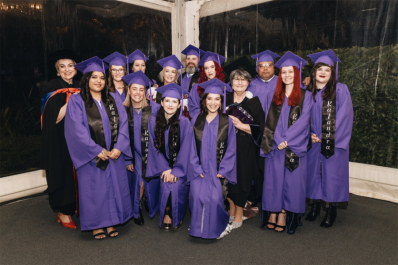An aging population, more people living alone and the demands of modern life mean more of us - and not just the elderly - are feeling lonely.
In the past four weeks more than 650,000 Kiwis have felt lonely, and those aged 15-24 are the loneliest.
University of Auckland professor of health sciences Merryn Gott has studied loneliness in the elderly as part of the National Science Challenge 'Ageing Well'.
She was struck by just how "significant a concern" loneliness and social isolation was for older people.
"One really poignant fact was that quite a lot chose not to have funerals as they said there is no one alive to come.
"Some of the interviews were quite upsetting. They use really evocative language to describe what it feels like to be lonely."
Gott says we need to talk about loneliness and the fact it is something everyone experiences at certain times.
"I think we need to recognise that there is a real stigma about identifying as being lonely, or socially isolated, and that's a real barrier for people to come forward and get help."
She's keen to see New Zealand follow the United Kingdom's lead and run a public health campaign focusing on loneliness - similar to the one John Kirwan fronted about depression - to destigmatise loneliness. The UK had a TV campaign featuring celebrities speaking out about their experiences of loneliness.
"I think something like that could be really effective about normalising it and getting people talking about it."
For the socially isolated, often the most vulnerable groups in our society, being lonely can have severe effects on their mental and physical health.
A former US Surgeon General Dr Vivek Murthy said the reduction in life span because of loneliness was similar to smoking 15 cigarettes a day - more than the impact of obesity.
Gott says investing in ways to help people connect and reduce loneliness would have huge cost savings.
She believes programmes that connect people and provide meaning by allowing older people to use their skills need promoting. The work of Age Concern and they way they tailor their programmes to their different communities was also worth supporting.
"There's so much expertise within the older people in our community."
Ideas like co-locating kindergartens in aged-care facilities, programmes that get older people into schools where there are a shortage of teacher aides to help with reading programmes, and other inter-generational approaches work well.
"It just seems there are real roles that would benefit everyone. Rather than people looking at the elderly as lonely victims.
"The artificial separation of the age groups doesn't seem that healthy for all of us."
She would also encourage the non-lonely to get involved. Research showed there was often more reward for volunteers than those needing support.
"That act of helping others makes us feel better and makes us feel more connected."
Sally Keeling, a senior lecturer at Otago University based in Christchurch, says while humans have always suffered loneliness, modern life -including an aging population and longer life expectancy - is exacerbating the problem.
"We've never known a society like this before, no society has ever had such big numbers of older people and had such a big degree of dispersal."
Keeling is also keen for aging to be framed positively - after all the alternative, dying a wasted early death, is terrible.
"We've worked long and hard for 100 years to deal with the causes of early death and now we've got a long lived population and we are saying this is terrible. Well ... what did you think we were doing?"
She is keen to see interactions and programmes have social value added to them.
For example rather than just starting a meal delivery programme a better approach would be a managed lunch club - where someone, with support of agencies who could help with health and safety requirements and transport, volunteers once a week to host a weekly shared meal.
"It takes a lot of doing, but that's a modern response to the same problem that 50 years ago developed Meals on Wheels."
The old-fashioned courtesies of kindness and looking out for your neighbour also go a long way. It might mean that as well as checking an app to see what rubbish is due to go out, neighbours remember to check in and see if their elderly neighbour needs a hand with their rubbish.
"I find that is very persuasive, the idea that there is always something in every day that you can do that might make a difference to someone in your orbit."
Source: Sally Kidson / Stuff
Back to News




